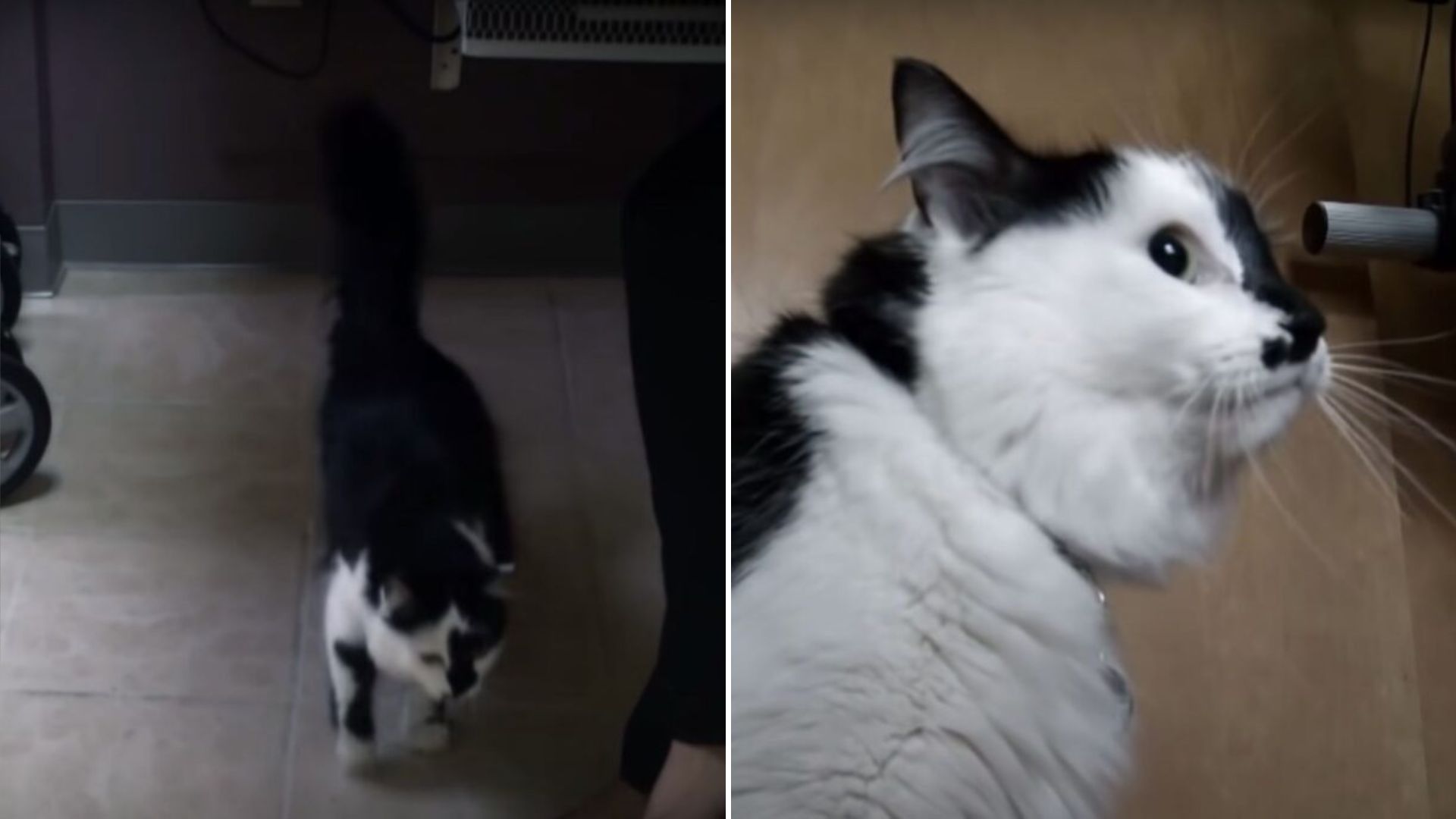Theresa Barker and Lee Palmer from Portland, Oregon, never imagined that their beloved Himalayan cat, Lux, would one day make national headlines. What began as a shocking and frightening incident soon turned into an emotional journey of understanding, responsibility, and compassion.
The Shocking Incident
The couple’s life took a terrifying turn when their 22-pound cat suddenly attacked their seven-month-old baby without warning. Lux’s claws scratched the infant’s forehead, but thankfully, the injuries were minor and didn’t require medical treatment.
However, what followed left the family deeply shaken. Lux became uncontrollably aggressive, growling and hissing before trapping Theresa, Lee, and their baby inside a bedroom. Terrified, the couple called 911 as the cat’s loud cries echoed through their home.
Also Read
This was not the first time Lux had shown signs of aggression. In the past, he had been moody and unpredictable, but this violent outburst was far beyond anything they had seen before. The attack forced Theresa and Lee to question whether Lux could safely remain in their home, especially with a young child.
Seeking Professional Help
After the frightening event, the Palmers reached out to the Multnomah County Animal Services Shelter for guidance. The experts there quickly recognized that Lux’s behavior wasn’t typical. He wasn’t simply a “bad cat” acting out of jealousy or fear—something deeper was going on.
In search of answers, Theresa and Lee contacted Jackson Galaxy, a well-known cat behaviorist and host of the television series My Cat From Hell. Galaxy had helped countless families manage difficult feline behavior, but Lux’s case would prove to be one of his most challenging.
A Startling Diagnosis
When Jackson Galaxy arrived, he began observing Lux’s behavior closely. What he found was more complex than mere aggression or territorial behavior. Galaxy suggested that the family take Lux to a veterinarian for a full medical evaluation.
The vet’s examination revealed something unexpected—Lux suffered from feline hyperesthesia syndrome, a rare neurological condition that causes sudden bursts of agitation, extreme sensitivity to touch, and unpredictable aggression.
Unfortunately, there is no cure for this condition. It can only be managed through medication, environmental control, and stress reduction.
Galaxy worked with the Palmers to help manage Lux’s behavior, but even after medication and training, the risk of another violent episode remained high. It became clear that Lux might never be fully safe in a home with a small child.
A Heartbreaking Decision
Faced with this painful reality, Theresa and Lee made the difficult decision to rehome Lux. It wasn’t a choice made out of frustration or fear but out of love and responsibility—for both their baby and Lux himself.
Letting go of a beloved pet is one of the hardest things any owner can do. The couple had raised Lux for years and loved him deeply, but they knew he needed a calmer, child-free environment to live peacefully.
A Hopeful New Beginning
As fate would have it, the family who had temporarily fostered Lux during his behavioral evaluation fell in love with him. They decided to adopt Lux permanently, giving him a fresh start in a quiet home where he could receive the consistent care and attention he needed.
Under medical supervision and in a stable, stress-free environment, Lux began to adjust. His aggression decreased, and he showed signs of calmness that hadn’t been seen in years. It wasn’t a miracle cure—but it was progress.
Lux finally found peace, and the Palmers were comforted by knowing he was safe and loved.
Lessons from Lux’s Story
Lux’s journey serves as a powerful reminder that responsible pet ownership isn’t just about keeping a pet at all costs. It’s about making decisions that prioritize the safety, health, and happiness of both the animal and the family.
Every pet has its own unique personality, needs, and challenges. Sometimes, the most compassionate act an owner can take is acknowledging when a different environment might be better suited for their companion.
Theresa and Lee’s story—and Lux’s transformation—highlights the importance of:
-
Recognizing unusual behavior as a possible sign of an underlying medical issue.
-
Seeking professional help early rather than reacting in frustration.
-
Understanding that rehoming a pet can, in some cases, be an act of love, not abandonment.
A Bittersweet but Beautiful Ending
Though the Palmers’ story began with fear and chaos, it ended with hope and understanding. Lux’s life took a positive turn once he was placed in an environment that met his needs, proving that even the most difficult situations can lead to growth and healing.
In the end, “the cat from hell” wasn’t evil at all—he was misunderstood, unwell, and in need of care. Lux’s story reminds us that empathy, patience, and informed decisions can turn even the most unexpected crises into opportunities for compassion and change.












